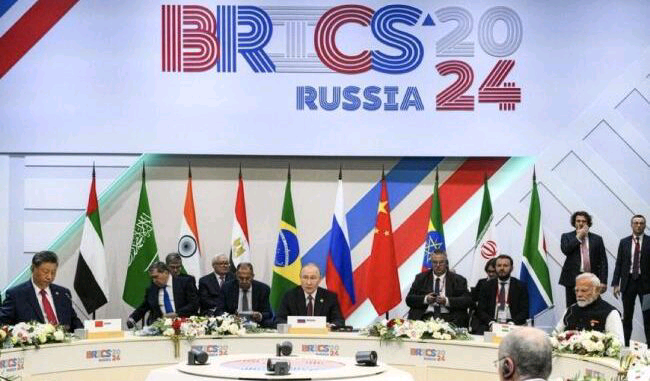In a move to enhance its global influence, the BRICS alliance has officially welcomed Nigeria and 12 other nations as partner countries during its recent summit in Kazan, Russia.
This decision was announced through a statement on the bloc’s X handle, outlining the inclusion of Algeria and Uganda among the African nations.
The newly inducted partner countries also include Belarus, Bolivia, Cuba, Indonesia, Kazakhstan, Malaysia, Thailand, Turkey, Uzbekistan, and Vietnam. While these nations will engage selectively with BRICS activities, they are not yet full members, which entails comprehensive participation rights and responsibilities.
The summit culminated in a joint communiqué that addressed pressing global issues, advocating for a more equitable international order.
ATTENTION: Click “HERE” to join our WhatsApp group and receive News updates directly on your WhatsApp!
The declaration emphasized the necessity for a multipolar world where emerging and developing nations have a stronger voice in global affairs.
It highlighted, “We note the emergence of new centers of power, policy decision-making, and economic growth, which can pave the way for a more equitable, just, democratic, and balanced multipolar world order.”
The BRICS nations reiterated their commitment to empowering regional organizations like the African Union and the Shanghai Cooperation Organization, recognizing their roles in promoting economic cooperation and cultural exchange.
READ ALSO: Nigeria Not Seeking Debt Forgiveness from China – Foreign Minister
Furthermore, the communiqué called for a reformed World Trade Organization to facilitate trade dispute resolutions and an expanded UN Security Council to enhance representation for the Global South.
BRICS, originally comprising Brazil, Russia, India, China, and South Africa, has seen its membership broaden to include Egypt, Ethiopia, Iran, and the United Arab Emirates, marking a pivotal shift towards inclusivity and representation in global governance.
.png)
 10 months ago
106
10 months ago
106









 English (US)
English (US)